June
2018
June 15, 2018
NASAA News and Current Information
Register for NASAA Assembly 2018
 Come one, come all—SAA and RAO staff and council members, that is—to NASAA Assembly 2018! Join your state arts agency and regional arts organization colleagues in Baltimore, Maryland, November 1-3. Our conference is focused on issues important to you, such as managing political polarization, the future of arts and technology, and advancing equity. Peer session agendas are forming, stimulating plenary speakers are being enlisted and amazing artists are preparing to share their finest. Registration is open and hotel reservations are being accepted at NASAA’s discounted rate at the Hyatt Regency, Baltimore Inner Harbor. Please join us!
Come one, come all—SAA and RAO staff and council members, that is—to NASAA Assembly 2018! Join your state arts agency and regional arts organization colleagues in Baltimore, Maryland, November 1-3. Our conference is focused on issues important to you, such as managing political polarization, the future of arts and technology, and advancing equity. Peer session agendas are forming, stimulating plenary speakers are being enlisted and amazing artists are preparing to share their finest. Registration is open and hotel reservations are being accepted at NASAA’s discounted rate at the Hyatt Regency, Baltimore Inner Harbor. Please join us!
Now Accepting Nominations: NASAA Leadership Awards
Nominate your state arts agency’s outstanding leaders for one of NASAA’s 2018 Leadership Awards! The Distinguished Public Service Award honors the exemplary service of a state arts agency or regional arts organization council leader, while the Gary Young Award recognizes the significant contributions of an executive director. Nominations are due by July 20. Visit NASAA’s 2018 Leadership Awards Nominations page for more information.
Submit Your Idea for Flashes of Inspiration
Flashes of Inspiration returns for a fifth time at NASAA Assembly 2018! NASAA is looking for the best and brightest state arts agency initiatives to showcase during this all-new Flashes of Inspiration session, and we want you! If you have an innovative program or successful initiative that you would like us to consider for Flashes of Inspiration 2018, please fill out our short submission form and tell us about your idea. The submission deadline is July 20.
Now’s the Time to Make a Bigger Impact
We know the significant impact your work has on artists, arts organizations and communities in your state. That’s why NASAA works hard for you—advocating for arts funding at the federal level, demonstrating the many benefits of the arts, and helping you make the case for support in your state, today. When you support NASAA, you support your own work and the great creative work happening all across the country. Thank you!
Blue Star Museums Map
This summer, the National Endowment for the Arts (NEA) again announces the Blue Star Museums program, an initiative that offers free museum admission to the nation’s active-duty military personnel and their families from Memorial Day weekend through Labor Day. The NEA is collaborating with Blue Star Families, the Department of Defense and more than 2,000 museums nationwide on the program. This map of participating museums is being updated throughout the summer as more museums sign on.
A Framework for Fostering Organizational Racial Equity
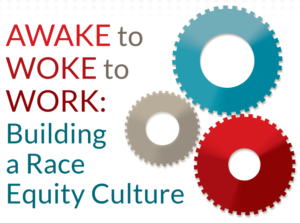 A new paper, AWAKE to WOKE to WORK: Building a Race Equity Culture, lays out a framework designed to help organizations move toward race equity through changes in their cultural characteristics, operational tactics and administrative practices. The framework—developed by Equity in the Center based on the contributions of more than 120 diversity, inclusion and race-equity thought leaders as well as a related literature review and data analysis—identifies seven structural “levers” that organizations can use to advance their commitment to racial equity. The paper identifies changes related to policies, processes, data, beliefs and behaviors that groups may experience as they go through the three stages—awake, woke and work—of implementing the framework.
A new paper, AWAKE to WOKE to WORK: Building a Race Equity Culture, lays out a framework designed to help organizations move toward race equity through changes in their cultural characteristics, operational tactics and administrative practices. The framework—developed by Equity in the Center based on the contributions of more than 120 diversity, inclusion and race-equity thought leaders as well as a related literature review and data analysis—identifies seven structural “levers” that organizations can use to advance their commitment to racial equity. The paper identifies changes related to policies, processes, data, beliefs and behaviors that groups may experience as they go through the three stages—awake, woke and work—of implementing the framework.
Beyond Top-Down Inclusion
Inclusion is a worthwhile goal for all nonprofit organizations. Designing truly inclusive programming, however, requires the input of the communities to be served, according to an article in Nonprofit Quarterly, Why Are We Having Conversations without Them? The piece argues that efforts to foster inclusive policies and programs need to be informed by the input of the people they support or else they could be one-sided and create a “restrictive form of inclusion” that can be self-defeating. The article calls for a reframing of inclusiveness that is based on dialogue between organizations and the populations they serve. It also recommends that organizations hold themselves accountable not just to their funders but also to their constituents.
Arts Integration in Higher Education
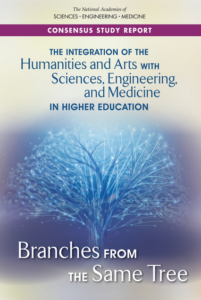 A new report from the National Academies of Sciences, Engineering and Medicine urges further integration of STEMM fields (science, technology, engineering, mathematics and medicine) with the arts and humanities in higher education. The report suggests that such integration helps students enter the work force, develop enriched lives, and become active and informed citizens. Positive learning outcomes are associated with some integrative approaches, including improved written and oral communication skills, content mastery, problem solving, teamwork skills, ethical decision making, empathy, and the ability to apply knowledge in real-world settings. The study was sponsored by the Andrew W. Mellon Foundation, the National Endowment for the Humanities, the National Endowment for the Arts, and the Scientists and Engineers for the Future Fund of the National Academies’ Presidents’ Committee.
A new report from the National Academies of Sciences, Engineering and Medicine urges further integration of STEMM fields (science, technology, engineering, mathematics and medicine) with the arts and humanities in higher education. The report suggests that such integration helps students enter the work force, develop enriched lives, and become active and informed citizens. Positive learning outcomes are associated with some integrative approaches, including improved written and oral communication skills, content mastery, problem solving, teamwork skills, ethical decision making, empathy, and the ability to apply knowledge in real-world settings. The study was sponsored by the Andrew W. Mellon Foundation, the National Endowment for the Humanities, the National Endowment for the Arts, and the Scientists and Engineers for the Future Fund of the National Academies’ Presidents’ Committee.
Assessing Philanthropic Support for Arts Education
The William and Flora Hewlett Foundation has been a leading supporter of arts education policy and advocacy throughout California since 2006. Recently, the foundation published a report, Arts Education Policy and Advocacy Grantmaking: Evaluation of Intent, Impact and Lessons (2007-2017), analyzing the impact of its work. The report reviews the foundation’s arts education grant-making history, including its challenges and successes, before assessing how the state’s arts education policy has changed over the past 10 years. It concludes with a discussion about increasing and measuring equitable access to arts learning opportunities vis-à-vis improving philanthropic support for arts education.
Aging, Cultural Participation and Wellness
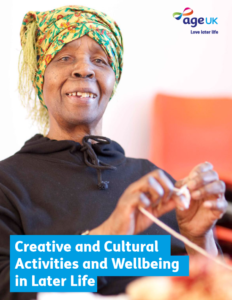 There is a new resource for understanding the benefits of creative aging and the best practices for implementing programs that support it. Creative and Cultural Activities and Wellbeing in Later Life, a paper published by the philanthropy Age UK, is based on data from surveys reflecting the experience of nearly 30,000 adults at least 60 years old. It measures creative and cultural participation among this population relative to their reported wellness. The paper concludes with a set of recommendations for creative aging practitioners and policymakers who want to facilitate older adults’ access to the arts.
There is a new resource for understanding the benefits of creative aging and the best practices for implementing programs that support it. Creative and Cultural Activities and Wellbeing in Later Life, a paper published by the philanthropy Age UK, is based on data from surveys reflecting the experience of nearly 30,000 adults at least 60 years old. It measures creative and cultural participation among this population relative to their reported wellness. The paper concludes with a set of recommendations for creative aging practitioners and policymakers who want to facilitate older adults’ access to the arts.
Effective Arts Integration
Preparing Educators and School Leaders for Effective Arts Integration is a new report from the Arts Education Partnership and the Education Commission of the States based on evidence that increasing access to arts education facilitates students’ ability to learn and to develop productive civic skills. The paper focuses in part on the connections between educators’ professional development and successful arts integration efforts. It also outlines policy recommendations states could adopt to foster arts integration practices.
The Rural Creative Class
Richard Florida, author of The Rise of the Creative Class—a book that broadened awareness of the depth and importance of arts economies in urban communities—has turned his eyes to rural America. In The Rise of the Rural Creative Class, an article recently published on CityLab, he summarizes research on rural innovation conducted separately by the National Endowment for the Arts and the U.S. Department of Agriculture’s Economic Research Service. Collectively, the research suggests that there is “a strong statistical association between the arts, innovation, and economic dynamism in rural areas.”
Leadership Change in D.C.
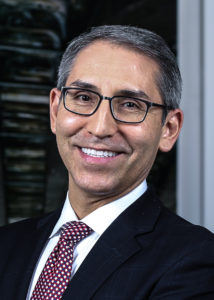 Arthur Espinoza has stepped down as executive director of the DC Commission on the Arts and Humanities. Since he joined the agency in 2015, his chief focal points were to increase access to agency funding by arts and humanities practitioners, to secure increased funding for the agency’s grant-making initiatives, and to develop robust public programs of diverse expression in the nation’s capital. Espinoza introduced the agency’s policy on inclusion, diversity, equity and access, which now permeates all aspects of agency operations and programs. He stewarded advocacy efforts while fortifying public trust in the agency by the realignment of agency standards and operational procedures. During his appointment, the Commission realized consecutive increases in its annual budget, with new funds largely supporting grant making; the agency’s annual appropriation went up approximately 205%, from $14 million to $30 million (excluding National Endowment for the Arts funds). Espinoza created many new staff positions, developed additional grant programs (especially in support of cultural facilities acquisition, repair and renovation) and expanded several grant funding cycles beyond a single annual opportunity. Finally, he began two new public programs: a local music festival and an arts and music festival; both are free to the public and support many local artists.
Arthur Espinoza has stepped down as executive director of the DC Commission on the Arts and Humanities. Since he joined the agency in 2015, his chief focal points were to increase access to agency funding by arts and humanities practitioners, to secure increased funding for the agency’s grant-making initiatives, and to develop robust public programs of diverse expression in the nation’s capital. Espinoza introduced the agency’s policy on inclusion, diversity, equity and access, which now permeates all aspects of agency operations and programs. He stewarded advocacy efforts while fortifying public trust in the agency by the realignment of agency standards and operational procedures. During his appointment, the Commission realized consecutive increases in its annual budget, with new funds largely supporting grant making; the agency’s annual appropriation went up approximately 205%, from $14 million to $30 million (excluding National Endowment for the Arts funds). Espinoza created many new staff positions, developed additional grant programs (especially in support of cultural facilities acquisition, repair and renovation) and expanded several grant funding cycles beyond a single annual opportunity. Finally, he began two new public programs: a local music festival and an arts and music festival; both are free to the public and support many local artists.
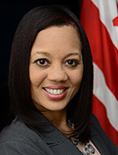 Angie M. Gates has been appointed to serve as interim director of the DC Commission on the Arts and Humanities. She also currently serves as director of the Office of Cable Television, Film, Music and Entertainment. Gates previously served as director of the Office of Motion Picture and Television Development before that office merged with the District’s Office of Cable Television. Prior to that, she was D.C. Mayor Muriel Bowser’s director of inauguration, was director of operations for the mayor’s transition team, and was the traveling chief of staff during the mayor’s campaign. In her role with the Office of Cable Television, Film, Music and Entertainment, Gates led the efforts in the historic launch of DC Radio 96.3HD4, the District’s first municipally managed radio station and the second full-powered, municipally owned HD radio station in the nation. She continues to play a pivotal role in the Mayor Muriel Bowser Presents 202Creates initiative, which highlights the diverse and vibrant creative community in the District of Columbia. Gates made history as the first African American general manager of the iconic Warner Theatre in Washington, D.C. Her extensive experience includes work with former President Barack Obama and First Lady Michelle Obama. Gates is the former associate general manager of the historic Saenger Theatre in New Orleans and the former director of engagement relations and marketing for Clear Channel Entertainment’s Theatrical Division. From the University of New Orleans, Gates received a bachelor’s degree in communication and a master of arts administration degree with a special concentration in sports management, graduating summa cum laude. Gates serves as a board member of the New Orleans Theatre Association and Negro League Hall of Fame. She is also a charter member of the Upsilon Chi Omega Chapter of Alpha Kappa Alpha Sorority, Incorporated. Gates currently serves as a governor of the Washington, D.C., chapter of the Recording Academy (The GRAMMYs).
Angie M. Gates has been appointed to serve as interim director of the DC Commission on the Arts and Humanities. She also currently serves as director of the Office of Cable Television, Film, Music and Entertainment. Gates previously served as director of the Office of Motion Picture and Television Development before that office merged with the District’s Office of Cable Television. Prior to that, she was D.C. Mayor Muriel Bowser’s director of inauguration, was director of operations for the mayor’s transition team, and was the traveling chief of staff during the mayor’s campaign. In her role with the Office of Cable Television, Film, Music and Entertainment, Gates led the efforts in the historic launch of DC Radio 96.3HD4, the District’s first municipally managed radio station and the second full-powered, municipally owned HD radio station in the nation. She continues to play a pivotal role in the Mayor Muriel Bowser Presents 202Creates initiative, which highlights the diverse and vibrant creative community in the District of Columbia. Gates made history as the first African American general manager of the iconic Warner Theatre in Washington, D.C. Her extensive experience includes work with former President Barack Obama and First Lady Michelle Obama. Gates is the former associate general manager of the historic Saenger Theatre in New Orleans and the former director of engagement relations and marketing for Clear Channel Entertainment’s Theatrical Division. From the University of New Orleans, Gates received a bachelor’s degree in communication and a master of arts administration degree with a special concentration in sports management, graduating summa cum laude. Gates serves as a board member of the New Orleans Theatre Association and Negro League Hall of Fame. She is also a charter member of the Upsilon Chi Omega Chapter of Alpha Kappa Alpha Sorority, Incorporated. Gates currently serves as a governor of the Washington, D.C., chapter of the Recording Academy (The GRAMMYs).
Margaret Vanderhye to Depart Virginia Commission
 Margaret Vanderhye, executive director of the Virginia Commission for the Arts (VCA) since March 2014, will be leaving her position at the end of June. During her time with the agency, VCA developed partnerships at the state and national levels among its arts, military, veterans, and health care professionals to create wellness and healing programs for active-duty personnel and veterans and their families. This included creation of a unique program for clinical arts therapists, veterans support services and arts organizations to provide clinical-to-community transition services. Additional accomplishments include growing VCA’s Artists in Education program with several new elements promoting the arts for inclusiveness and 21st century work-force skills; transitioning to an on-line grant management system; and, as part of its 50th anniversary celebration, launching a “50 for 50” Arts Inspiration Awards program to acknowledge and celebrate artists and arts leaders from the last 50 years. Another highlight was the inauguration of the DaVinci Lecture, which showcases the connections between the arts and technology for Virginia’s 21st century innovation economy. Since Vanderhye’s arrival at VCA, the Commission received its first increase in state funding in eight years, for fiscal year 2019. Vanderhye plans to continue building bridges across public and private sectors and between state and national programs to promote the arts for economic vitality, a creative work force and cultural literacy, as well as wellness and healing programs, particularly for active-duty and veteran populations. She says, “I have been truly inspired by the thousands of thoughtful, creative, and hard-working people I have met, and I will be forever changed by their example.”
Margaret Vanderhye, executive director of the Virginia Commission for the Arts (VCA) since March 2014, will be leaving her position at the end of June. During her time with the agency, VCA developed partnerships at the state and national levels among its arts, military, veterans, and health care professionals to create wellness and healing programs for active-duty personnel and veterans and their families. This included creation of a unique program for clinical arts therapists, veterans support services and arts organizations to provide clinical-to-community transition services. Additional accomplishments include growing VCA’s Artists in Education program with several new elements promoting the arts for inclusiveness and 21st century work-force skills; transitioning to an on-line grant management system; and, as part of its 50th anniversary celebration, launching a “50 for 50” Arts Inspiration Awards program to acknowledge and celebrate artists and arts leaders from the last 50 years. Another highlight was the inauguration of the DaVinci Lecture, which showcases the connections between the arts and technology for Virginia’s 21st century innovation economy. Since Vanderhye’s arrival at VCA, the Commission received its first increase in state funding in eight years, for fiscal year 2019. Vanderhye plans to continue building bridges across public and private sectors and between state and national programs to promote the arts for economic vitality, a creative work force and cultural literacy, as well as wellness and healing programs, particularly for active-duty and veteran populations. She says, “I have been truly inspired by the thousands of thoughtful, creative, and hard-working people I have met, and I will be forever changed by their example.”
In this Issue
From the President and CEO
State to State
- Indiana: On-Ramp
- Georgia: Conveying the Impact of the Arts
- Delaware: Seashore Poets' & Prose Writers' Retreat
- State to State Articles Archived on NASAA Website
Legislative Update
Announcements and Resources
More Notes from NASAA
Research on Demand
SubscribeSubscribe
×
To receive information regarding updates to our newslettter. Please fill out the form below.
